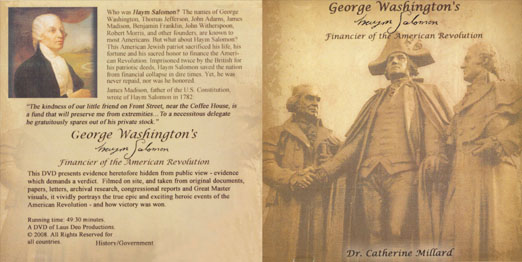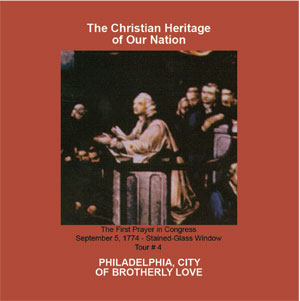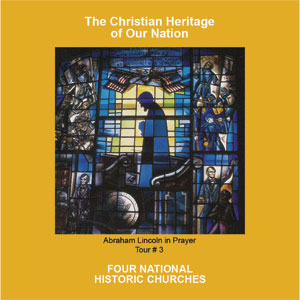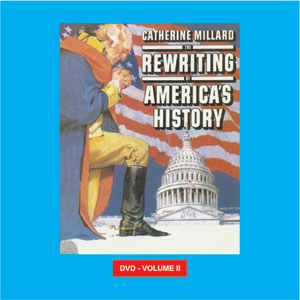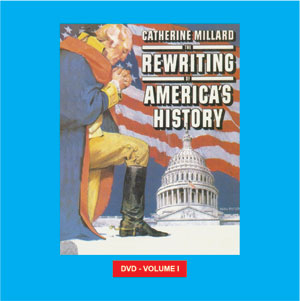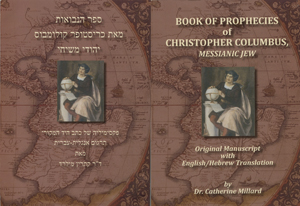A July 25, 2012, front page article in the Washington Post entitled, “Liberty through the Lens – Should we be led by faith?” by Ann Gerhart, states that “he (Jefferson) assembled his own Bible.
The “Jefferson Bible” Myth
Housed in the archives of the Smithsonian Institution is Jefferson’s “The Life and Morals of Jesus of Nazareth, extracted textually from the Gospels in Greek, Latin, French & English.” Its Table of Contents, also in Jefferson’s handwriting, reads: “A Table of the Texts from the Evangelists employed in this Narrative and the order of their arrangement.”
This one-of-a-kind museum piece, was neither catalogued, nor printed by Jefferson. In 1904, 78 years after Jefferson’s death, the United States Congress ordered the printing of 9,000 copies of his “Life and Morals…” but they did so under the erroneous title of “The Jefferson Bible.” This was executed as a government document by the 57th Congress, first session, as follows:
“That there by printed and bound, by photolithographic process, with an introduction of not to exceed twenty-five pages, to be prepared by Dr. Cyrus Adler, Librarian of the Smithsonian Institution, for the use of Congress, 9,000 copies of Thomas Jefferson’s Morals of Jesus of Nazareth, as the same appears in the National Museum; 3,000 copies for the use of the Senate and 6,000 copies for the use of the House. Cyrus Adler.”
It is unfortunate that the title given by Jefferson was not utilized, but instead it was entitled: “The Jefferson Bible.” In addition, Jefferson’s format of chapter and verse, followed by word for word Scripture verses, on the doctrinal teachings of Christ was also changed. The Bible chapters and verses were removed, and the text was written in narrative form. In Jefferson’s original, not one word of commentary or opinion by him was included. The rewritten version of 1904 is misleading, giving the false impression that Thomas Jefferson “wrote his own Bible.” Further, this work was a pure exercise for Thomas Jefferson. Similar harmonies of the Word of God have been produced in recent years as Bible study aids. Subsequent to the printing of this one-of-a-kind museum piece by the 57th U.S. Congress as “a Government Document,” American colleges seized upon it to teach youth the fallacy that “Jefferson had written his own Bible” – thus discrediting this great founding father and author of the Declaration of Independence.
Thomas Jefferson’s Personal Bible – catalogued by Jefferson
Thomas Jefferson’s library includes many volumes on religion. This is now part of the Library of Congress Rare Book Collection and is listed under the title Jefferson Collection. There are 190 entries under the title “Religion,” 187 of these pertaining to Christianity, mostly Bibles, while the remaining three are as follows:
An Historical Account of the Heathen gods and heroes necessary for understanding of the ancient poets. 1722. Boyse’s Pantheon History of Heathen gods, for those who would understand History, Poetry, Painting, Statuary, Medals, coins, etc. 1753. And one copy of Sale’s Koran, 1764.
On the title page of this catalogue, Jefferson’s famous words are quoted: “…I am for freedom of Religion, and against all maneuvers to bring about a legal ascendancy of one sect over another…” From these words we see Jefferson’s abhorrence of a legally established state church, dictating to, and controlling other Christian denominations at will. This he denounces and calls “priestcraft.”
Among Jefferson’s entries on religion are innumerable Bibles – Greek, Latin, French and English versions; the Septuagint (Greek Old Testament); The Holy Bible – Old and New Testaments, translated out of the original tongues, and with the former translations diligently compared and revised, 1804. Jefferson’s well-worn, beautifully leather-bound, (4 volume) personal Bible, which he ordered from his friend Charles Thomson, its Translator from the Greek, holds preeminence in this collection. The Jefferson Collection Rare Book card catalogue entry describes Jefferson’s Bible as:
Bible. English. 1808.
Thomson
The Holy Bible containing the Old and New Covenant,
commonly called the Old and New Testament
translated from the Greek by Charles Thomson, late Secretary
to the Congress of the United States. Philadelphia. Printed
by J. Aitken, 1808. The Bible on which Dr. Daniel Boorstin
took the oath of office as the 12th Librarian of Congress,
November 12, 1975.
In his 1862 book, “Monticello,” Captain Edmond Bacon, the manager of Monticello for 20 years, relates that, “…Mr. Jefferson had a sofa or lounge upon which he could sit or recline, and a small table on rollers, upon which he could write or lay his books; and other times he would recline on his sofa, with his table rolled up, the sofa astride it. He had a large Bible, which nearly always lay at the head of his sofa. Many and many a time I have gone into his room and found him reading that Bible. You remember I told you about riding all night from Richmond, after selling that flour, and going into his room very early in the morning, and paying over to him the new United States Bank money. That was one of the times I found him with the big Bible open before him on his little table, and he busy reading it. And I have seen him reading it in that way many a time. Some people, you know, say he was an atheist. Now if he was an atheist, why did he spend so much of his time reading his Bible?…”
Where is this “large Bible,” which Captain Bacon found Jefferson reading, “many and many a time?”
This large Bible (King James 1611 Authorized) is the Jefferson Family Bible, very well worn, and kept in a vault in the Archives of the University of Virginia, together with his equally-worn Prayer Book. Thomas Jefferson inscribed the names, dates of birth and death of his beloved wife, Martha Wayles Jefferson, and his six children, four of which died in infancy, while a fifth daughter, Mary, died in 1804, aged 26.1 His eldest daughter, Martha Jefferson Randolph, lived at Monticello with her husband and Jefferson’s eleven grandchildren.
To learn more, click here.
___________________________
Bibliography:
1
The Jefferson Family Bible (King James 1611 Authorized) and Thomas Jefferson’s Prayer Book. The University of Virginia Archives, Charlottesville, Virginia.

